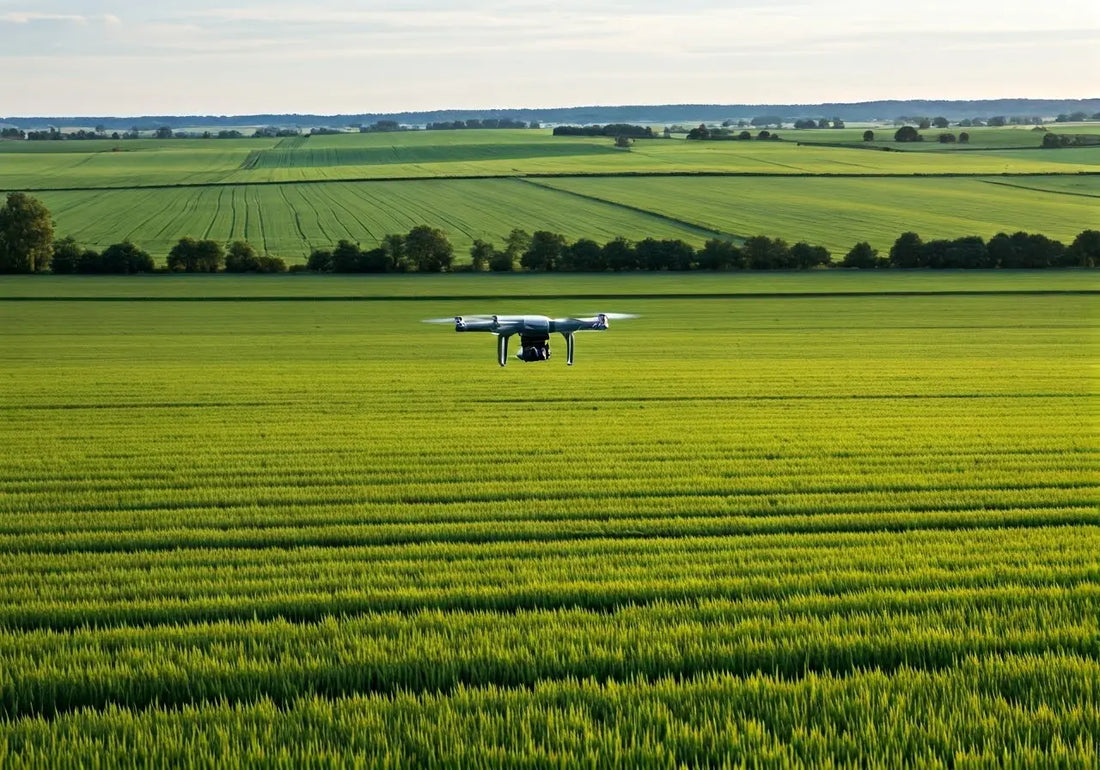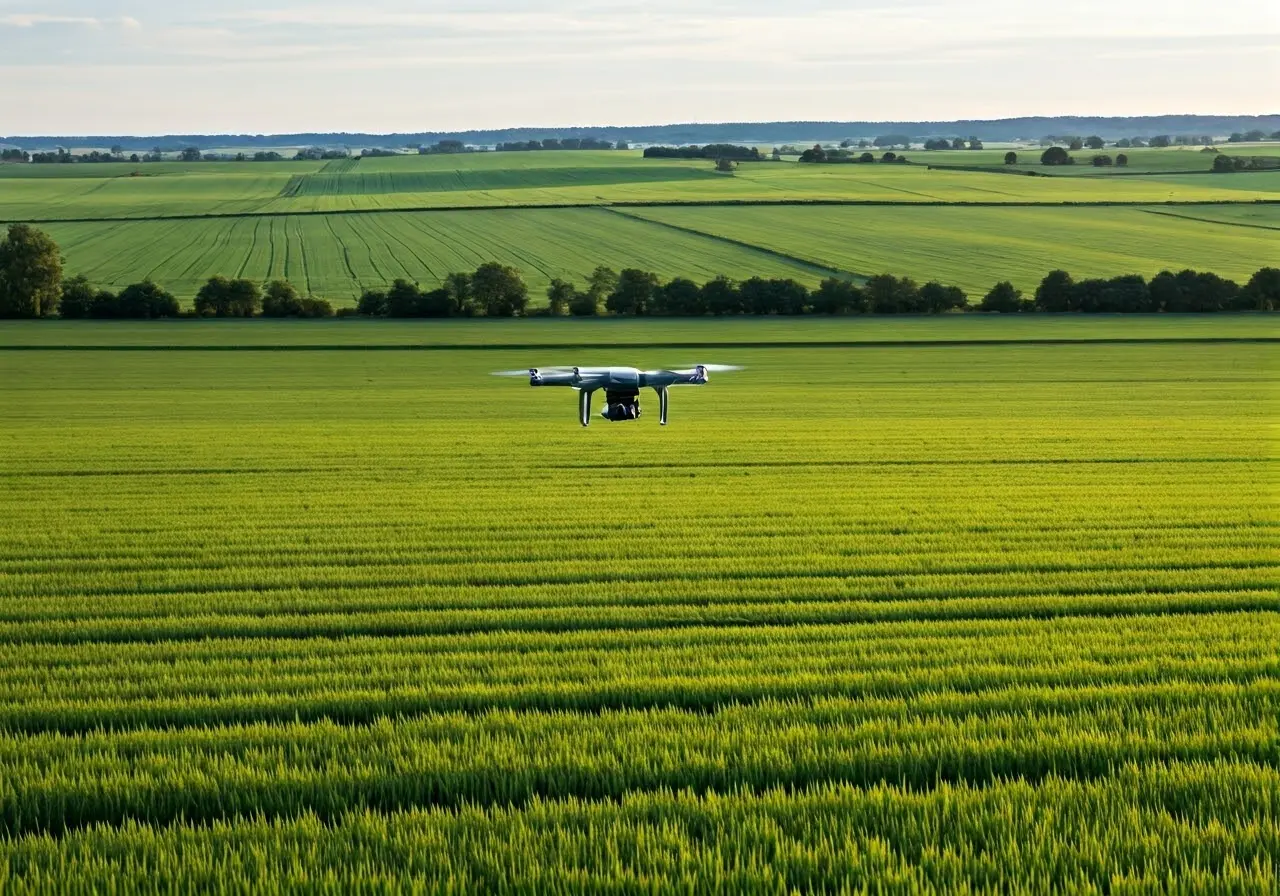
Revolutionizing Agriculture with DJI Drones
Share
In recent years, drone technology has taken the agricultural industry by storm. With companies like DJI leading the charge, farmers worldwide are witnessing a transformation in the way crops are grown, monitored, and maintained. In this blog, we’ll explore how DJI drones are revolutionizing agriculture.
Understanding DJI Drones: A Brief Overview
DJI, a leader in drone technology, has developed drones that are particularly useful for agricultural applications. These drones come equipped with advanced sensors and imaging capabilities that offer valuable insights. The comprehensive guide to DJI Agriculture Drones reveals how these technologies are revolutionizing farming by providing unparalleled precision and data analysis, crucial for modern-day agriculture.
Their ability to perform complex tasks such as spraying and mapping makes them indispensable for precision farming. The DJI Agras series, in particular, stands out for its capacity to handle a range of agricultural operations effectively. Designed to cater to various farm sizes and types, these drones are equipped with advanced technologies that allow for precise spraying, seeding, and real-time analysis.
One significant advantage of DJI’s agricultural drones is their capacity for real-time monitoring and data collection. Equipped with state-of-the-art imaging sensors, these drones can capture high-resolution images and generate multispectral data. This enables farmers to get a comprehensive overview of their fields, helping them make informed decisions about crop management.
Enhancing Crop Monitoring and Management
With DJI drones, farmers can now monitor their crops with ease. These drones provide real-time data on crop health, moisture levels, and more, enabling more informed decision-making and timely interventions. The integration of DJI drones into agricultural practices allows farmers to detect issues such as disease or pest infestations early, potentially averting significant damage.
By utilizing DJI drones, farmers can precisely identify areas that require intervention, whether it is irrigation, fertilizer application, or pest control. This precision not only enhances crop health but also improves overall yield. The integration of multispectral imaging technology allows drones to assess factors such as nutrient levels and soil moisture content, offering farmers a holistic view of their farmland.
For instance, the DJI Agras T40 model has proven to be pivotal in modern farms, providing insights that guide the management of specific crops with precision. Such targeted and precise application of resources results in increased productivity and sustainable farming practices.
Precision Agriculture and Increased Efficiency
The precision offered by DJI drones allows for targeted application of fertilizers and pesticides, reducing waste and increasing efficiency. By utilizing drones, farmers can ensure that resources are used only where needed. Their advanced capabilities support the shift towards resource-efficient agriculture, minimizing both environmental impact and input costs.
DJI drones like the Agras series have revolutionized precision agriculture through their ability to apply treatments down to the centimeter. This level of precision reduces the chances of over-spraying, thereby conserving resources and mitigating adverse environmental effects. Such capabilities ensure crops receive exactly what they need, optimizing growth and increasing yields significantly.
The drones’ integrated systems are designed to enhance operational efficiency, allowing vast areas to be covered swiftly with minimal human intervention. By reducing the need for excess manual labor, DJI drones not only save costs but also allocate labor resources more effectively across other farm operations.
Reducing Environmental Impact
Using drones can lead to significant reductions in the environmental impact of agricultural practices. With their ability to survey large areas quickly, drones help minimize the need for heavy machinery and excessive chemical usage. Technological advancements in DJI’s drones play a crucial role in fostering sustainable agricultural practices by promoting precise input applications.
The strategic use of DJI drones in agriculture means applying fertilizers and pesticides only where necessary, which reduces chemical runoff into nearby water sources. This not only contributes to a healthier ecosystem but also ensures compliance with environmental regulations. Reduced fuel consumption from machinery operations further enhances the sustainability of farming practices.
DJI drones also offer farmers the ability to monitor environmental changes and respond accordingly. Identifying areas suffering from excessive drought, flooding, or pest invasion helps in allocating resources efficiently, further strengthening the sustainable use of land and resources.
Economic Benefits and Cost Savings
Adopting DJI drone technology can lead to substantial cost savings for farmers. By optimizing input use and improving crop yields, drones contribute to a healthier bottom line. The initial investment in drone technology may appear daunting; however, the long-term savings in resource expenditure and labor offer a strong financial incentive for farmers.
Farmers can expect to see improvements not only in yield quantity but also in quality. The precision of DJI drones means that farming inputs are used more effectively, enhancing the quality of produce. The cost savings from reduced chemical usage and labor can be reinvested to expand operations or enhance other facets of the farming business.
Furthermore, DJI drones streamline farm management, enabling data-driven decisions that can significantly lower operational costs. The automated and precise application of inputs helps diminish waste, both time-wise and resource-wise, granting farmers a more profitable operational model.
Future Prospects: Innovation and Growth
The future of agriculture looks promising with continuous advancements in drone technology. DJI is committed to further innovations that will continue to redefine farming practices and enhance agricultural productivity. By staying at the forefront of drone innovation, DJI supports a positive and progressive trajectory for farming technologies that align with global needs and challenges.
With ongoing developments and adaptations, DJI drones will increasingly incorporate artificial intelligence and machine learning algorithms, bringing even greater levels of autonomy and precision to farm operations. This evolution enhances productivity, allowing farms to adapt to climate change effects and fluctuating market demands.
Future iterations of DJI drones are poised to offer unprecedented capabilities, allowing farmers to unlock new potentials in crop management and operational efficiency. As these technologies advance, the ability to seamlessly integrate sustainability with productivity ensures a promising future for agriculture, benefitting both the environment and farmers’ livelihoods.
The Future of Farming: Embracing Drone Technology
As technology continues to evolve, so too will the tools available to farmers. DJI drones are at the forefront of this innovation, offering new possibilities and efficiencies in agriculture. By embracing this technology, farmers can improve yields, reduce costs, and contribute to a more sustainable future for agriculture.

